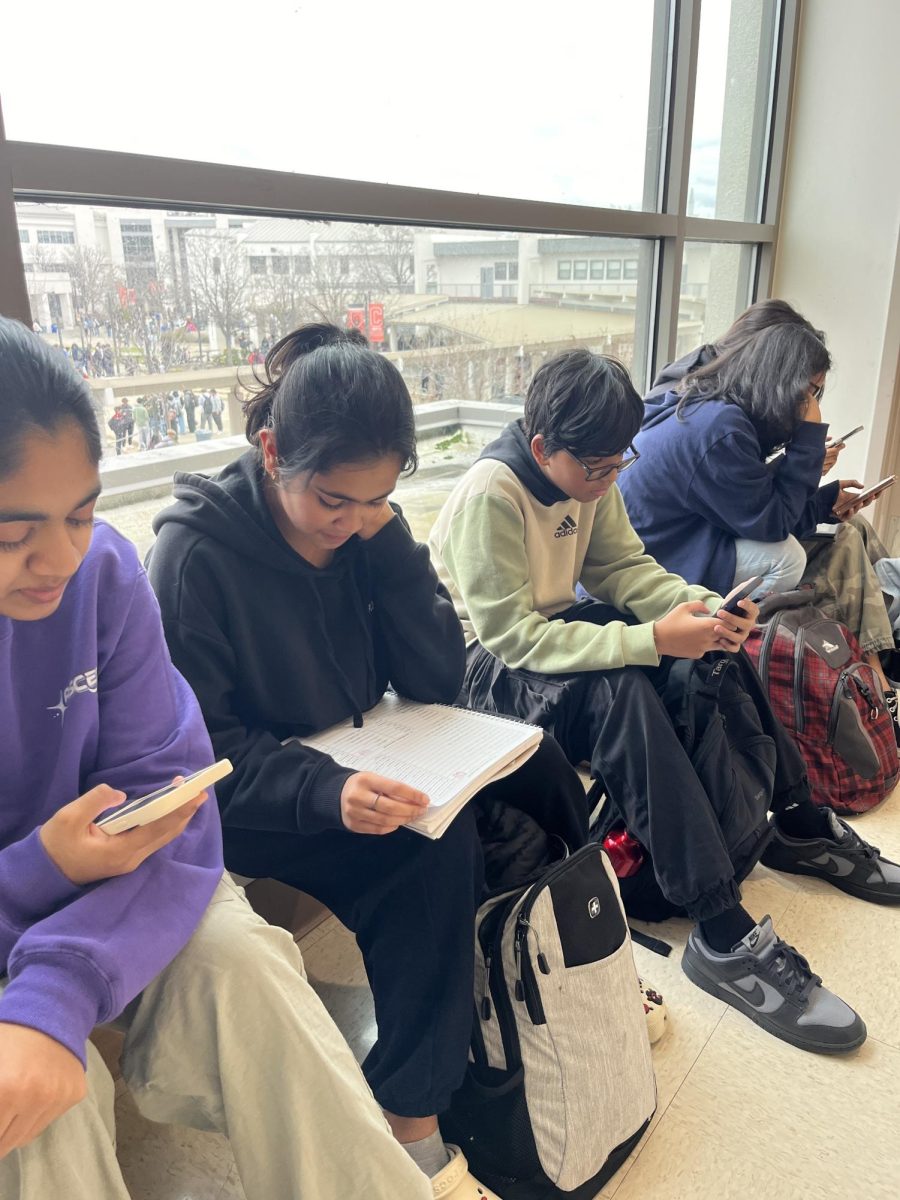by Emma von der Lieth, staff writer
On May 23, 2011, San Ramon Valley High School sophomore Allison Bayliss went missing. Two days later, the search for Bayliss was called off after police reported that she jumped from the Golden Gate Bridge in an apparent suicide.
Suicide is the third leading cause of death for 15 to 24 year olds, and more than 5,000 U.S. teens commit suicide each year, according to the American Academy of Child and Adolescent Psychiatry. For most young people suicidal thoughts can often be attributed to academic and social stress.
“Teens get stressed out from school, and their grades,” said senior Ihla Larson. “There are also a lot of pressures to fit in at school and that can contribute to suicide.”
Sixty-eight percent of teens said that school was their main source of stress, according to the study “Confronting Teen Stress, Meeting the Challenge in Baltimore City.”
“The most important thing is to keep your life balanced,” said counselor Bev Hall. “Don’t overload on academics, and keep your life in perspective.”
In addition to stress, teens who have anxiety, depression or insomnia are more likely to have suicidal thoughts, according to kidshealth.org.
“I think teen suicide is a big problem because teens are constantly changing and growing up, and it’s happening all at once,” said freshman Angelica Pollard. “Teens are experiencing hormonal changes, peer pressure and bullying, which can have a big influence on them and lead to depression.”
Depression, a major contributor to suicide, is characterized by two or more weeks of extreme feelings of hopelessness, sadness, or worthlessness. Those with a family history of depression or absent parents are more susceptible to depression and having suicidal thoughts, according to a study by the University of Minnesota.
In addition to mental disorders, there are many other factors that can cause teens to feel depressed or have suicidal thoughts.
“Low self-esteem, lack of social support, and bullying in general can cause suicide in teens,” said psychology teacher Brandon Quick. “The suicide rate for teens is so high because the changes of adolescence physically and cognitively can have a big impact.”
According to the White House, 13 million kids are bullied each year.
“Many kids feel isolated by bullying,” said Hall. “If they don’t have a great support system at home, bullying can definitely contribute to suicide.”
The Centers for Disease Control report that about 14 percent of high school students have seriously considered suicide in the past year.
“I know some people who have been bullied, and been called names,” said junior Alexis Colvin. “Someone I know developed an eating disorder because other students were calling her fat. It’s really horrible.”
To combat bullying, education is key. According to njea.org, 80 percent of students wanted to learn ways to end bullying, avoid fights, and get along better with peers.
“We need to teach kids to be more tolerant of other people and their ideas,” said Hall. “However, other kids speaking up about bullying and stopping it at the source can make the biggest difference.”
Cal High has implemented many guidelines concerning bullying. These guidelines include a no tolerance policy in which any student who is seen harassing another student will receive punishment. All staff are also required to attend district-wide anti-bullying training .
Cyberbullying, an online facet of bullying, can also have harmful effects on teens. In 2010, Phoebe Prince, a high school student in Massachusetts, committed suicide after receiving hateful messages online. Unfortunately, many other students have had the same experience as Prince.
More than half of teens have been bullied online, according to BullyingStatistics.org.
“I think that cyberbullying is a big problem,” said sophomore Sara Bilich. “People think it’s not as bad to say mean things online, but it’s just as hurtful.”
In addition, those who are lesbian, gay, bisexual or transgender are two to three times more likely to attempt suicide than other teens, according to Mental Health America.
On Sept. 22, 2010, 18-year-old Rutgers University student Tyler Clementi jumped from the George Washington Bridge in New York after a roommate posted a video of him kissing another man.
On April 20 there was the National Day of Silence to raise awareness about LGBT teen harassment.
If you or someone you know is having suicidal thoughts Hall recommends talking to a trusted adult like a family member or teacher.





